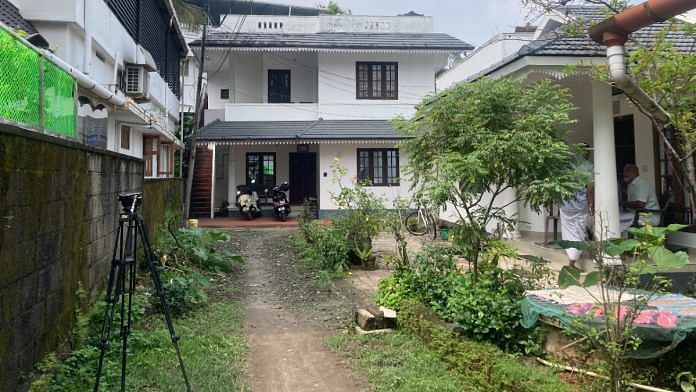Kochi: Red stairs open onto the landing, with slippers strewn around the locked door and smoked cigarette butts neatly collected in a temporary ashtray. The sound of television and soft conversation carries through the window panes. At one point, someone slips a phone camera in the window to turn the lens on the media, who are staking out the apartment.
Reporters mill about the compound waiting for something to happen, keeping a respectful distance from the two-storey building. The family of Dominic Martin is cloistered in their three-bedroom apartment on the second floor, makeshift curtains tightly drawn to keep out prying eyes.
Family members — including Martin’s mother-in-law and cousins — have rallied around his wife and daughter, staving off unwanted visitors.
Martin’s landlord and neighbour B.A. Jaleel had no idea who or what a Jehovah’s Witness was, until the “reclusive person” living right above him for almost six years confessed to bombing the convention centre where thousands of them had gathered for Sunday morning prayers.
Dominic Martin, 48, turned himself in Sunday after posting a video to Facebook claiming responsibility for detonating bombs in Kalamassery’s Zamra Convention Centre, killing three and injuring over 50.
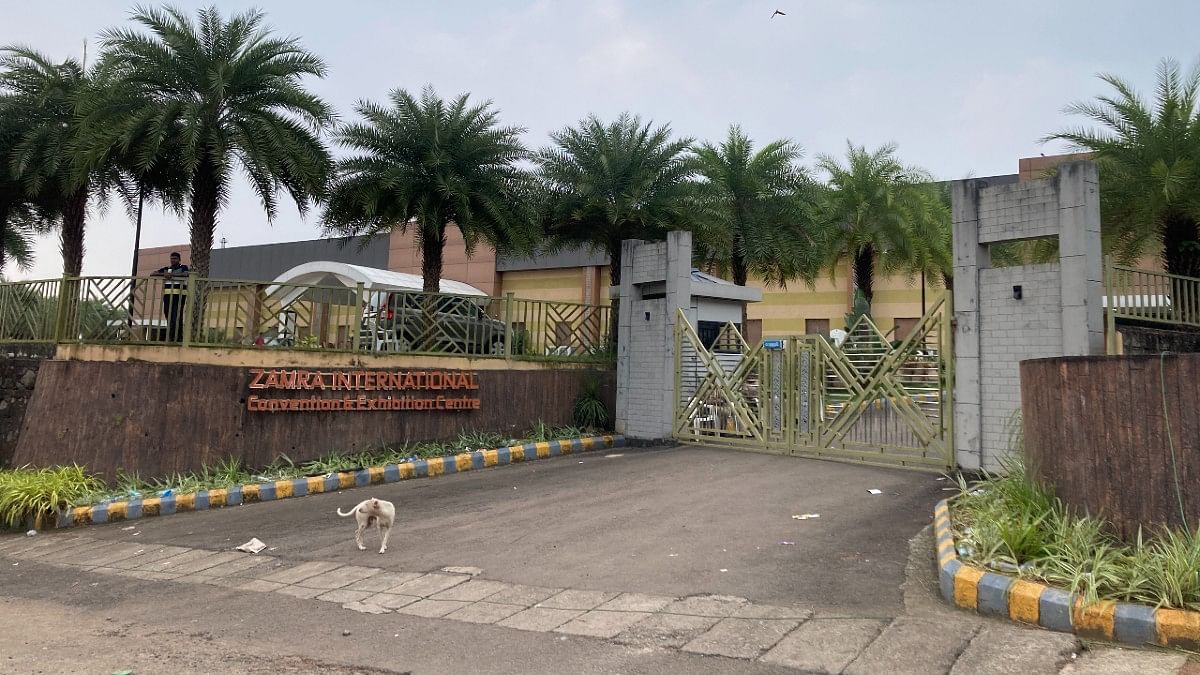
A quiet, unassuming person who teaches spoken-English, Martin has largely kept to himself in the area. In fact, he was living in Dubai for the last two years, having only returned to Kochi around August 2023.
No one had any idea of what he was planning, or why. And no one could guess what would happen next.
“He kept to himself and generally did not interact with people. The family went to Church occasionally but they never had guests visiting them. Only his children’s friends would come over at times,” Jaleel tells ThePrint.
A narrow lane lined with brick walls opens into the compound of three houses, with Martin’s family occupying the house in the far corner. The compound used to be Jaleel’s family’s ancestral home, which has since been broken down and carved up amongst extended family members. Extended family and other neighbours have been dropping by out of curiosity, offering support and chit-chatting with reporters.
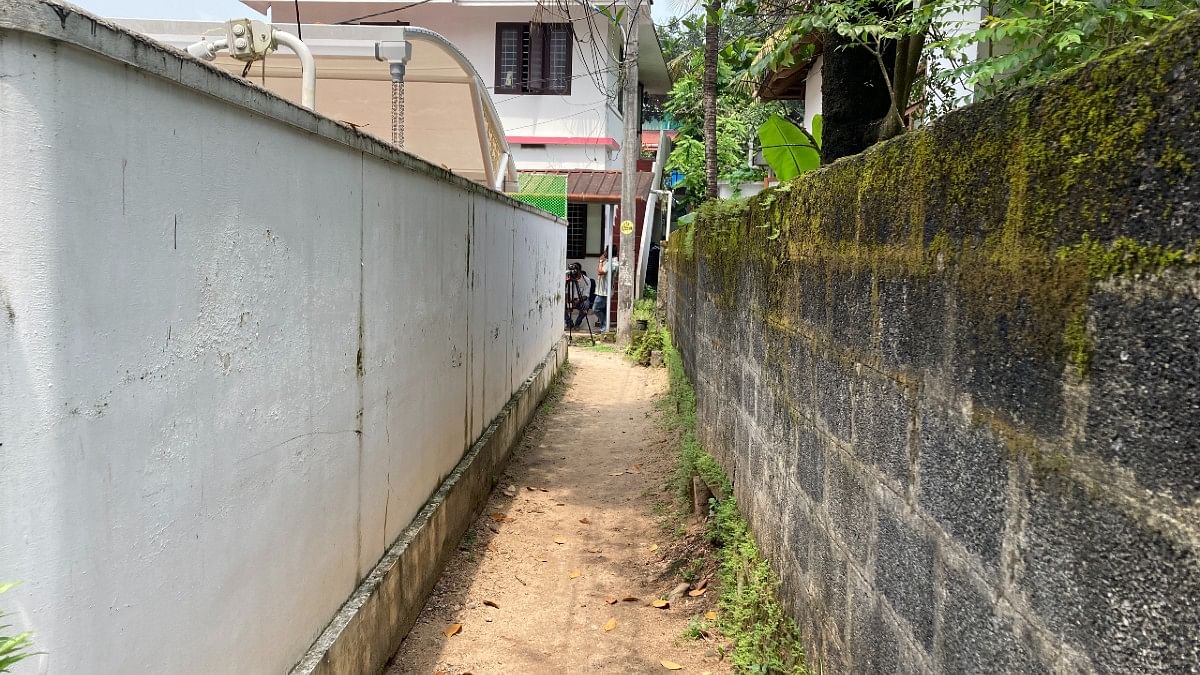
Martin allegedly left his home early Sunday morning, having told his wife that he was going to meet a friend. The blasts occurred around 9:30 am, around 15 km away from his home. He then posted a video to Facebook in the afternoon, before surrendering at a police station in the town of Thrissur — about an hour from Kochi.
Sources in Kerala police say one of Martin’s odd jobs was as a civil foreman. Investigators suspect he spent Rs 3,000 to make the bombs that were detonated Sunday, assembling them at home after doing some research on the internet. Martin was instrumental in the plot, according to senior police sources who established his complicity while recording his arrest.
“A serious difference of opinion in how the group conducted themselves is what led him to commit such an atrocious act,” said a source in the Kerala police, agreeing that Martin is an interesting psychological case study as he voluntarily turned himself in.
Also Read: Kerala has a ghost houses problem, but the state just doesn’t want to get into it
‘Can’t imagine Martin even thinking of such a thing’
Jaleel was warned by Martin’s wife, Mini, that things would get hectic. She called him Sunday — in a shaky, tearful voice, says Jaleel — to inform him that Martin had posted a video claiming responsibility for the bomb blasts. The police and media would probably arrive to ask questions, and he should be prepared, she told him.
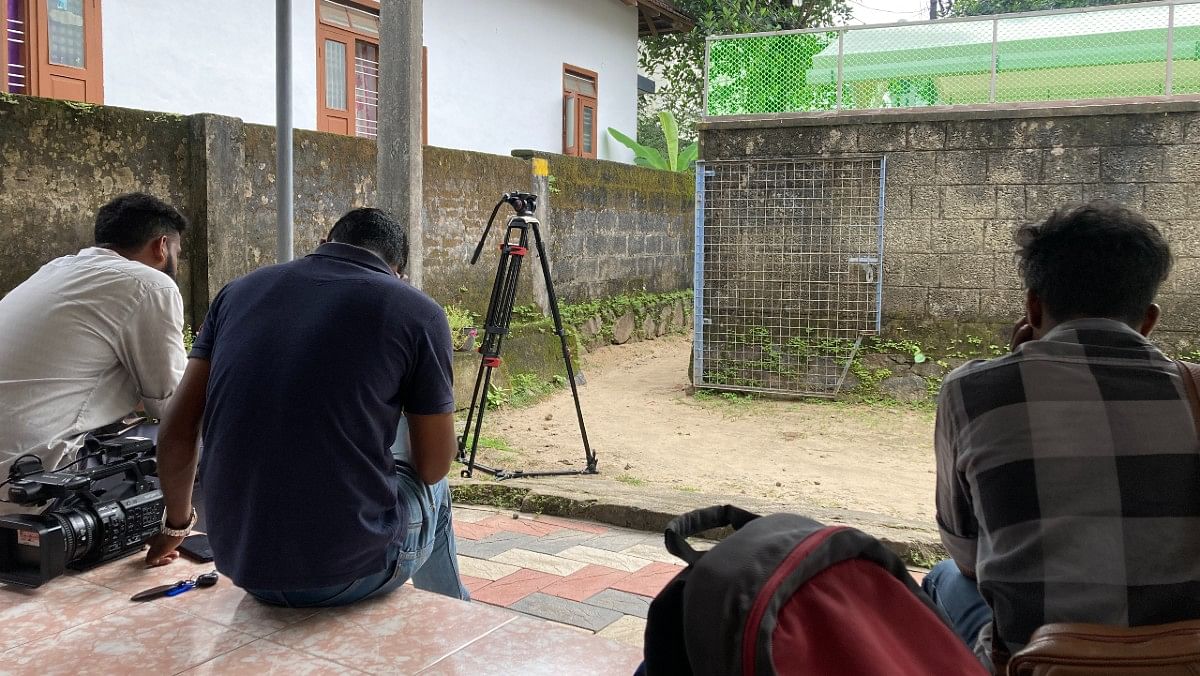
“I knew they were Christians, not that it matters much,” adds Jaleel. “I had no idea about Jehovah’s Witnesses. I can’t imagine that such a thing could happen — I can’t imagine (Martin) even thinking of such a thing.”
“We still can’t believe that this has happened,” he says, wringing his hands as his wife ducks into their home, shrugging. It’s been a long two days.
“We aren’t that close, but we’ve never had any problems as such. The family is educated, calm, and there’s never any disturbance. I never knew about him caring so much about (this issue),” he adds.
There’s still confusion about what exactly happened, and if Martin truly is responsible for it.
Jehovah’s Witnesses — the controversial sect
Jehovah’s Witnesses are no strangers to controversy, whether in India or abroad. Often seen as annoying proselytisers — since they conduct door-to-door campaigns to induct people into their sect — Jehovah’s Witnesses have earned a troubled reputation.
The movement first came to India in 1905, and picked up popularity in the 1950s. There are around 56,000 Jehovah’s Witnesses in India, making up a congregation that respects the government and obeys its laws, “as long as these do not call on us to disobey God’s laws.” There are an estimated 17,000 members in Kerala spread across 200 congregations.
This might be the point of conflict, according to Martin’s Facebook confession. He said he wanted to “rectify” the group’s “anti-national stand,” pointing out that they are asked not to join the defence services and are instructed not to sing the national anthem.
“We were just attending the event when all this chaos happened,” says a Jehovah’s Witness who requested anonymity. “Our beliefs are the same all over the world, there’s nothing different about what happens here in India. This is just ignorance and misinformation. Our priority now is to care for all the affected, who are admitted in hospitals across the city.”
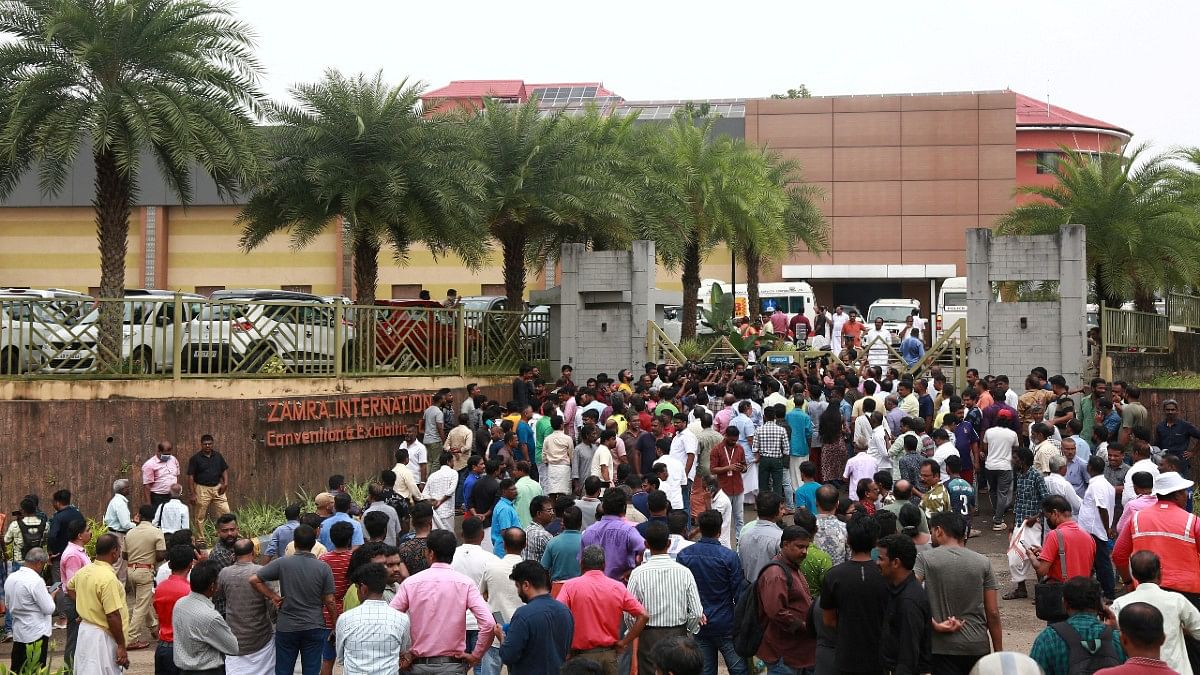
Despite being a Christian sect, Jehovah’s Witnesses follow a very distinctly different set of rules. They worship Jehovah as the one true God. They base all their beliefs on the Bible, and don’t celebrate holidays like Christmas and Easter. Their door-to-door evangelism often involves telling people that the end of the world is near, and that the “Kingdom of God” will replace human governments.
India has tried legislating around the Jehovah’s Witnesses: in 1986, the Supreme Court considered a landmark case involving the sect — and Kerala.
Three Malayali siblings, Bijoe, Binu Mol and Bindu Emmanuel, refused to sing the national anthem in school as they felt it was against their religious beliefs. In July 1986, a “patriotic gentleman” who also happened to be an MLA, noticed this perceived insubordination, and the children were expelled.
The Supreme Court held that their expulsion was a violation of their freedom of speech. It also held that the students held religious faith, and their expulsion for standing while the anthem was sung but not joining in singing it violated their fundamental right to freedom of conscience, and freedom to profess, practice and propagate religion.
“It is evident that Jehovah’s Witnesses, wherever they are, do hold religious beliefs which may appear strange or even bizarre to us, but the sincerity of their beliefs is beyond question,” the court said.
Justice O. Chinnappa Reddy noted that their “peculiar beliefs” were not really noticed in India.
More recently, Jehovah’s Witnesses were in the headlines in 2020 after a private hospital in Bengaluru claimed to perform a liver transplant of a Nigerian Jehovah’s Witness by not using blood in order to protect the patient’s beliefs — as they believe in avoiding practices that “displease God, including the misuse of blood by taking blood transfusions”.
“I do not think the Jehovah’s Witnesses are accepted as Christians, they do not accept Christ as divine and part of the Trinity although they look as a separated Christian denomination,” says noted Kochi-based theologian Father Paul Thelakat.
He adds that Jehovah’s Witnesses believe that a “human must not sustain his life with another creature’s blood” and that it is their “deep-seated religious conviction that Jehovah will turn his back on anyone who receives blood”. According to Thelakat, they “claim to “restore” the original Christianity fulfilment of Jesus’ parable of the wheat and the weeds”.
ThePrint reached the national governing body of Jehovah’s Witnesses via text about why their actions might be considered “anti-national” in India but had not received a response by the time of publication. This report will be updated if and when a response is received.
‘Malayalis care about their beliefs very deeply’
In his confession video, Martin said he realised the organisation was “on the wrong track” six years ago. After initially confirming that Martin was a Jehovah’s Witness and had attended meetings, the group has since distanced itself from him.
Martin was an English teacher, teaching adults to speak English with the right accent and intonation, but had spent the last two years doing odd-jobs in Dubai after losing his job during the pandemic. His wife is a homemaker, while his daughter works at a tech company in Kochi’s InfoPark and his son studies in the United Kingdom. They pay around Rs 10,000 in rent — an average amount for the residential area.
Martin would spend time in the home’s front room, and would take the family’s only vehicle, a scooter, whenever he needed to go out. Things have been fairly quiet in the last two months since he returned, until his explosive involvement in this scandal.
But investigating agencies haven’t yet ruled out other angles, according to sources.
On Sunday, before Martin turned himself in, many Muslim history-sheeters were picked up by the police and released only after Martin’s confessional video made it to the police.
Jaleel, whose family are also practising Muslims, was unsurprised by this bias. But this was also the first time he was learning about the existence of the Jehovah’s Witnesses. “Kerala is a religious society, so I know Malayalis care about their beliefs very deeply,” he says, while a cousin nods next to him.
“That being said, no one would have guessed that (Martin) would care so deeply about religion. The truth will come out.”
(Edited by Amrtansh Arora)
Also Read: ‘Selling dreams to small people’—Kerala’s lottery system powers ambition, addiction


